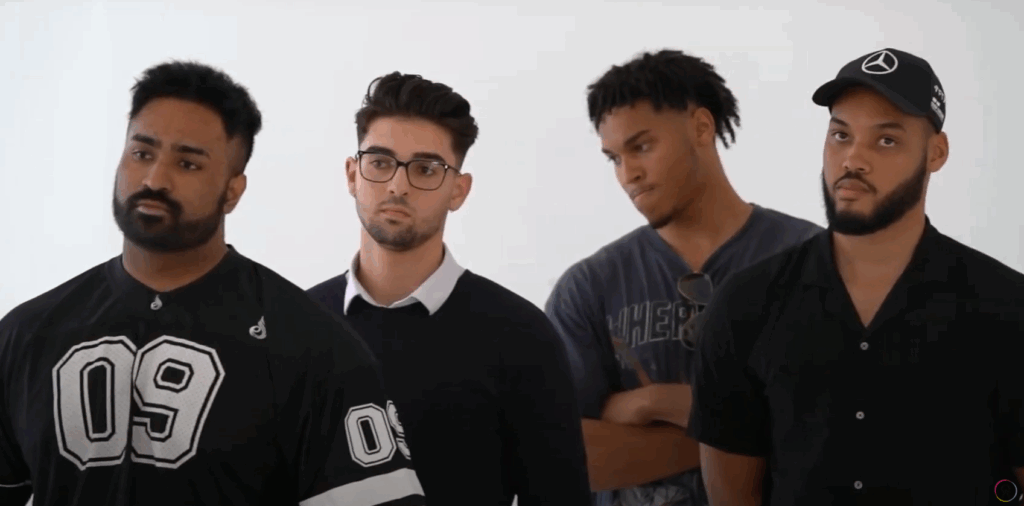
“He says things that no one else is willing to say.”
“Yeah — because they’re things that shouldn’t be said.”
This exchange between two young Australian men — one a Tate supporter, the other a staunch critic — happened on the set of Quasar Central’s Men vs Women Spectrum episode. It wasn’t staged. It was unscripted friction in its rawest, realest form.
The debate wasn’t just about Andrew Tate.
It was about manhood, media, mental health, dating, feminism, and frustration.
It was about what it means to be a man right now in the Asia-Pacific — where global influencers clash with local realities.
🎯 Why This Conversation Matters
From TikTok to talk radio, masculinity is being redefined in real time.
Andrew Tate has positioned himself at the epicenter of that transformation — especially for young men feeling disoriented in a post-#MeToo, post-lockdown, hyper-digital world.
In Australia, the clash is even sharper:
- Cultural expectations around “mateship,” stoicism, and sporting toughness
- A growing mental health crisis among men under 35
- Rising female empowerment and changing dating dynamics
- Limited emotional vocabulary passed down through generations
Quasar Central, through its Men vs Women and Do All [Group] Think The Same? series, is documenting this evolution — not to sanitize it, but to spotlight its contradictions.
🧠 What the Data Says About Men in Australia
- 1 in 3 young Australian men follow or engage with content from influencers like Andrew Tate (Digital News Report, 2024)
- Suicide is the leading cause of death for men aged 15–44 in Australia (ABS, 2023)
- Over 60% of young men in a recent VicHealth study said they feel pressure to “always be in control”
- 36% believe feminism has “gone too far” — compared to 18% of women
These aren’t just stats. They’re signals. And the algorithms are listening.
🎥 Case Study: Quasar Central’s “Men vs Women” Episode
Location: Gold Coast
Cast Breakdown:
- 5 Men: Mixed ethnicities, ages 19–35
- 5 Women: Equally diverse in background and opinion
- No pre-scripted topics
- Prompts ranged from “Modern feminism is toxic” to “It’s harder to be a man today”
Key Moments:
- A young man defending Tate’s views on traditional roles, while acknowledging they’re “harsh but true”
- A female entrepreneur countering that “emotional repression isn’t strength — it’s trauma in disguise”
- An Indigenous man sharing how both feminism and masculinity conversations ignore cultural masculinity frameworks
What emerges isn’t consensus. It’s conflict that creates clarity.
💬 What Participants Really Said
Here are a few direct quotes from the cast:
“Being a man used to mean something. Now, we’re told to sit down and shut up.”
“If your confidence is built on controlling women, it’s not confidence. It’s fear.”
“I respect Tate for giving young guys something to grab onto. But that doesn’t make it right.”
“My brother took his life last year. You think a podcast about alpha males is what he needed?”
This isn’t clickbait. It’s the emotional cost of ideology — laid bare.
🧨 Andrew Tate’s Appeal in APAC: Not Just Western Rage
Tate’s influence stretches far beyond the West.
In Asia-Pacific regions, his message lands in unique ways:
- In conservative migrant households, it echoes cultural patriarchies
- Among underemployed youth, it promises discipline and purpose
- For disenfranchised young men, it offers identity where institutions fail
But what’s missing in most analyses is this:
Young men aren’t drawn to Tate because they’re hateful.
They’re drawn to him because they’re hungry for answers — and no one else is feeding them.
🤝 What Quasar Central Does Differently
Unlike YouTubers who monetize outrage, Quasar Central creates spaces, not sides:
- Real cast. No influencers. No clout-chasers.
- Raw edits. No villain arcs. No forced consensus.
- Emotional diversity. Men who cry, laugh, disagree — and grow.
It’s not about Tate. It’s about tension.
It’s about asking better questions than “who’s right?”
👥 Community Reaction
From YouTube comments to Discord debates, viewers said:
“I’ve never heard men speak like this on camera. Vulnerable and flawed.”
“I came in hating Tate. Now I understand why some guys follow him.”
“This isn’t a debate show — it’s therapy on camera.”
And that’s intentional. Quasar isn’t trying to cancel anyone. We’re trying to connect perspectives.
🧭 Where This Series Is Going Next
Future episodes on masculinity from Quasar will explore:
- Do All Islander Men Think the Same?
- Fatherhood in the Diaspora
- Ranking Men Based on Emotional Intelligence
- Men and Mental Health in Regional Australia
Each episode will integrate:
- Community-submitted questions
- Mental health professional commentary (post-episode recaps)
- Live audience response streams
Because masculinity is too complex to capture in a single take — and too urgent to ignore.
📝 Final Thought
“I don’t need to agree with Andrew Tate to understand why people do. But I need better role models to offer in his place.”
That’s what a 22-year-old construction worker said after shooting wrapped.
Masculinity in Australia — and the broader APAC — is at a crossroads.
And Quasar Central is helping document that journey.
Not with judgment. With curiosity.
Not with perfect answers. With real conversations.
📺 Watch the full “Men vs Women” debate now on Quasar Central
💬 Tag a mate, brother, or boyfriend — and start your own version of this convo.
